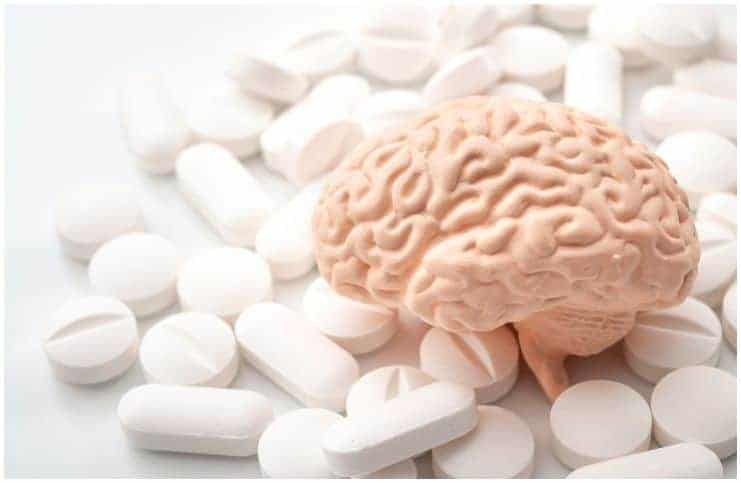Neuroleptic Malignant Syndrome (NMS)
It is a rare, but life-threatening, idiosyncratic reaction to neuroleptic medications. These drugs are usually prescribed for the treatment of schizophrenia and other mental, neurological, or emotional disorders.
Most people will develop this syndrome shortly after initial exposure and about 90 percent within 14 days of starting the neuroleptic medicines. Incidence rates for NMS range from 0.02 to 3% among sufferers taking these neuroleptic agents.
It can be fatal, thus, it is vital that healthcare specialists are aware of the causative medicines, risk factors, and symptoms of this condition. However, the mortality rate from this syndrome has been declining in recent years.
Symptoms
Signs and symptoms usually include:
- confusion;
- high fever;
- variable blood pressure;
- rigid muscles;
- fast heart rate;
- sweating;
- psychomotor agitation;
- delirium that may progress to lethargy, stupor, and coma.
The duration of these symptoms can last from 8 hours to 40 days. The symptoms are longer with parental medication.
Causes
The cause of this syndrome is not known for sure, however, it is most commonly connected to meds that stop and block dopamine, a brain chemical, from working correctly.
Furthermore, this syndrome has been reported after the withdrawal of dopaminergic agents, like – levodopa, and rarely due to some systemic disease, including end-stage malignancy (most likely because of the secretion of an unidentified antidopaminergic compound).
It is not known if NMS can be genetically inherited as the signs and symptoms can happen to almost everyone, even if they have been using the prescription medications which cause it for a long time.
Other factors that have been reported to predispose to this syndrome include – mood disorder, dehydration, male sex, youth, intramuscular route of antipsychotic administration, severe agitation, underlying neurological disease, relatively high doses of antipsychotic meds, and the use of psychotropics.
Treatment
Treatment of this syndrome is directed toward controlling the hyperthermia and rigidity as well as preventing possible complications (such as – renal failure and respiratory failure).
Serotonin Syndrome (SS)
Also known as serotonin toxicity, it is a potentially life-threatening condition linked with increased serotonergic activity in the CNS – central nervous system.
Serotonin is a natural hormone made by our body (more than 95% is produced in the intestines). Serotonin functions as a neurotransmitter that is a substance that sends messages between nerve cells in the brain and throughout the human body.
Serotonin has an essential role in the proper functioning of brain and nerve cells and is thought to impact mood. It also helps regulate breathing, body temperature, blood flow, and digestion. In the central nervous system, this neurotransmitter influences sleep, mood, aggression, thermoregulation, the perception of pain, and vomiting.
In the 1960s, SS was 1st described during studies of single and combination therapy with antidepressant medicines.
Symptoms
Note – the symptoms of SS usually start within hours of taking a new medicine which affects serotonin levels. More importantly, this syndrome can occur if you excessively increase the dose of a medication you are already taking.
The onset tends to be acuter than in NMS, which shares some other features and characteristics with SS. These symptoms commonly resolve within 24 hours, nevertheless, they may last up to 40 days after you stop using a medicine (depending on the time needed by your body to break down the medicine):
- high blood pressure;
- sensitive reflexes;
- jerky eye movement or dilated pupils;
- diarrhea;
- shivering, heavy sweating, or a fever of more than 40°C (104°F);
- headaches;
- a racing heartbeat and high blood pressure;
- loss of muscle coordination;
- diarrhea;
- agitation, restlessness, or confusion.
Causes
This syndrome usually occurs when two meds (or a supplement) that affect the human body’s level of serotonin are used together at the same time because these medications cause too much of this hormone to be released in the brain area.
Medicines and supplements implicated in this syndrome include:
- antiemetics – metoclopramide and ondansetron;
- analgesics – pethidine, tramadol, dextromethorphan, and fentanyl;
- antidepressants – SNRI, SSRI, MAOI, TCA, lithium, and St John’s wort (a flowering plant in the family Hypericaceae);
- some illegal drugs – MDMA, cocaine, LSD, and amfetamine;
- tryptophan, in the form of a dietary supplement, may also lead to SS.
Important note – some individuals are more sensitive to the above medicines and supplements than are others, nevertheless, SS can occur in anyone using these medicines.
Treatment
The treatment of this syndrome mainly consists of:
- assessing the severity of toxicity;
- ceasing the serotonergic meds;
- providing supportive care;
- the use of oxygen therapy and IV fluid administration (only in moderate and severe patients).
NMS vs Serotonin Syndrome – Differences
SS and NMS are very rare, however, both are serious adverse reactions associated with psychotropic medicines. Due to their similar presentation, the diagnosis is quite problematic.
Image credit – Shutterstock
READ THIS NEXT: Drinking Sodas While Pregnant – Side Effects
